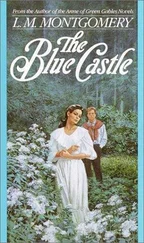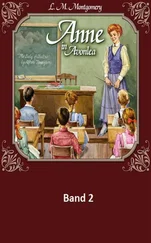Lucy Montgomery - Rainbow Valley
Здесь есть возможность читать онлайн «Lucy Montgomery - Rainbow Valley» весь текст электронной книги совершенно бесплатно (целиком полную версию без сокращений). В некоторых случаях можно слушать аудио, скачать через торрент в формате fb2 и присутствует краткое содержание. Жанр: Детская проза, на английском языке. Описание произведения, (предисловие) а так же отзывы посетителей доступны на портале библиотеки ЛибКат.
- Название:Rainbow Valley
- Автор:
- Жанр:
- Год:неизвестен
- ISBN:нет данных
- Рейтинг книги:4 / 5. Голосов: 1
-
Избранное:Добавить в избранное
- Отзывы:
-
Ваша оценка:
- 80
- 1
- 2
- 3
- 4
- 5
Rainbow Valley: краткое содержание, описание и аннотация
Предлагаем к чтению аннотацию, описание, краткое содержание или предисловие (зависит от того, что написал сам автор книги «Rainbow Valley»). Если вы не нашли необходимую информацию о книге — напишите в комментариях, мы постараемся отыскать её.
Rainbow Valley — читать онлайн бесплатно полную книгу (весь текст) целиком
Ниже представлен текст книги, разбитый по страницам. Система сохранения места последней прочитанной страницы, позволяет с удобством читать онлайн бесплатно книгу «Rainbow Valley», без необходимости каждый раз заново искать на чём Вы остановились. Поставьте закладку, и сможете в любой момент перейти на страницу, на которой закончили чтение.
Интервал:
Закладка:
When Carl was able to go again to Rainbow Valley they had a special feast in his honour and the doctor came down and helped them with the fireworks. Mary Vance was there, too, but she did not tell any ghost stories. Miss Cornelia had given her a talking on that subject which Mary would not forget in a hurry.
Chapter XXXII. TWO STUBBORN PEOPLE
Rosemary West, on her way home from a music lesson at Ingleside, turned aside to the hidden spring in Rainbow Valley. She had not been there all summer; the beautiful little spot had no longer any allurement for her. The spirit of her young lover never came to the tryst now; and the memories connected with John Meredith were too painful and poignant. But she had happened to glance backward up the valley and had seen Norman Douglas vaulting as airily as a stripling over the old stone dyke of the Bailey garden and thought he was on his way up the hill. If he overtook her she would have to walk home with him and she was not going to do that. So she slipped at once behind the maples of the spring, hoping he had not seen her and would pass on.
But Norman had seen her and, what was more, was in pursuit of her. He had been wanting for some time to have talk with Rosemary, but she had always, so it seemed, avoided him. Rosemary had never, at any time, liked Norman Douglas very well. His bluster, his temper, his noisy hilarity, had always antagonized her. Long ago she had often wondered how Ellen could possibly be attracted to him. Norman Douglas was perfectly aware of her dislike and he chuckled over it. It never worried Norman if people did not like him. It did not even make him dislike them in return, for he took it as a kind of extorted compliment. He thought Rosemary a fine girl, and he meant to be an excellent, generous brother-in-law to her. But before he could be her brother-in-law he had to have a talk with her, so, having seen her leaving Ingleside as he stood in the doorway of a Glen store, he had straightway plunged into the valley to overtake her.
Rosemary was sitting pensively on the maple seat where John Meredith had been sitting on that evening nearly a year ago. The tiny spring shimmered and dimpled under its fringe of ferns. Ruby-red gleams of sunset fell through the arching boughs. A tall clump of perfect asters grew at her side. The little spot was as dreamy and witching and evasive as any retreat of fairies and dryads in ancient forests. Into it Norman Douglas bounced, scattering and annihilating its charm in a moment. His personality seemed to swallow the place up. There was simply nothing there but Norman Douglas, big, red-bearded, complacent.
"Good evening," said Rosemary coldly, standing up.
"'Evening, girl. Sit down again—sit down again. I want to have a talk with you. Bless the girl, what's she looking at me like that for? I don't want to eat you—I've had my supper. Sit down and be civil."
"I can hear what you have to say quite as well here," said Rosemary.
"So you can, girl, if you use your ears. I only wanted you to be comfortable. You look so durned uncomfortable, standing there. Well, I'LL sit anyway."
Norman accordingly sat down in the very place John Meredith had once sat. The contrast was so ludicrous that Rosemary was afraid she would go off into a peal of hysterical laughter over it. Norman cast his hat aside, placed his huge, red hands on his knees, and looked up at her with his eyes a-twinkle.
"Come, girl, don't be so stiff," he said, ingratiatingly. When he liked he could be very ingratiating. "Let's have a reasonable, sensible, friendly chat. There's something I want to ask you. Ellen says she won't, so it's up to me to do it."
Rosemary looked down at the spring, which seemed to have shrunk to the size of a dewdrop. Norman gazed at her in despair.
"Durn it all, you might help a fellow out a bit," he burst forth.
"What is it you want me to help you say?" asked Rosemary scornfully.
"You know as well as I do, girl. Don't be putting on your tragedy airs. No wonder Ellen was scared to ask you. Look here, girl, Ellen and I want to marry each other. That's plain English, isn't it? Got that? And Ellen says she can't unless you give her back some tom-fool promise she made. Come now, will you do it? Will you do it?"
"Yes," said Rosemary.
Norman bounced up and seized her reluctant hand.
"Good! I knew you would—I told Ellen you would. I knew it would only take a minute. Now, girl, you go home and tell Ellen, and we'll have a wedding in a fortnight and you'll come and live with us. We shan't leave you to roost on that hill-top like a lonely crow—don't you worry. I know you hate me, but, Lord, it'll be great fun living with some one that hates me. Life'll have some spice in it after this. Ellen will roast me and you'll freeze me. I won't have a dull moment."
Rosemary did not condescend to tell him that nothing would ever induce her to live in his house. She let him go striding back to the Glen, oozing delight and complacency, and she walked slowly up the hill home. She had known this was coming ever since she had returned from Kingsport, and found Norman Douglas established as a frequent evening caller. His name was never mentioned between her and Ellen, but the very avoidance of it was significant. It was not in Rosemary's nature to feel bitter, or she would have felt very bitter. She was coldly civil to Norman, and she made no difference in any way with Ellen. But Ellen had not found much comfort in her second courtship.
She was in the garden, attended by St. George, when Rosemary came home. The two sisters met in the dahlia walk. St. George sat down on the gravel walk between them and folded his glossy black tail gracefully around his white paws, with all the indifference of a well-fed, well-bred, well-groomed cat.
"Did you ever see such dahlias?" demanded Ellen proudly. "They are just the finest we've ever had."
Rosemary had never cared for dahlias. Their presence in the garden was her concession to Ellen's taste. She noticed one huge mottled one of crimson and yellow that lorded it over all the others.
"That dahlia," she said, pointing to it, "is exactly like Norman
Douglas. It might easily be his twin brother."
Ellen's dark-browed face flushed. She admired the dahlia in question, but she knew Rosemary did not, and that no compliment was intended. But she dared not resent Rosemary's speech—poor Ellen dared not resent anything just then. And it was the first time Rosemary had ever mentioned Norman's name to her. She felt that this portended something.
"I met Norman Douglas in the valley," said Rosemary, looking straight at her sister, "and he told me you and he wanted to be married—if I would give you permission."
"Yes? What did you say?" asked Ellen, trying to speak naturally and off-handedly, and failing completely. She could not meet Rosemary's eyes. She looked down at St. George's sleek back and felt horribly afraid. Rosemary had either said she would or she wouldn't. If she would Ellen would feel so ashamed and remorseful that she would be a very uncomfortable bride-elect; and if she wouldn't—well, Ellen had once learned to live without Norman Douglas, but she had forgotten the lesson and felt that she could never learn it again.
"I said that as far as I was concerned you were at full liberty to marry each other as soon as you liked," said Rosemary.
"Thank you," said Ellen, still looking at St. George.
Rosemary's face softened.
"I hope you'll be happy, Ellen," she said gently.
"Oh, Rosemary," Ellen looked up in distress, "I'm so ashamed—I don't deserve it—after all I said to you—"
"We won't speak about that," said Rosemary hurriedly and decidedly.
"But—but," persisted Ellen, "you are free now, too—and it's not too late—John Meredith—"
Читать дальшеИнтервал:
Закладка:
Похожие книги на «Rainbow Valley»
Представляем Вашему вниманию похожие книги на «Rainbow Valley» списком для выбора. Мы отобрали схожую по названию и смыслу литературу в надежде предоставить читателям больше вариантов отыскать новые, интересные, ещё непрочитанные произведения.
Обсуждение, отзывы о книге «Rainbow Valley» и просто собственные мнения читателей. Оставьте ваши комментарии, напишите, что Вы думаете о произведении, его смысле или главных героях. Укажите что конкретно понравилось, а что нет, и почему Вы так считаете.




